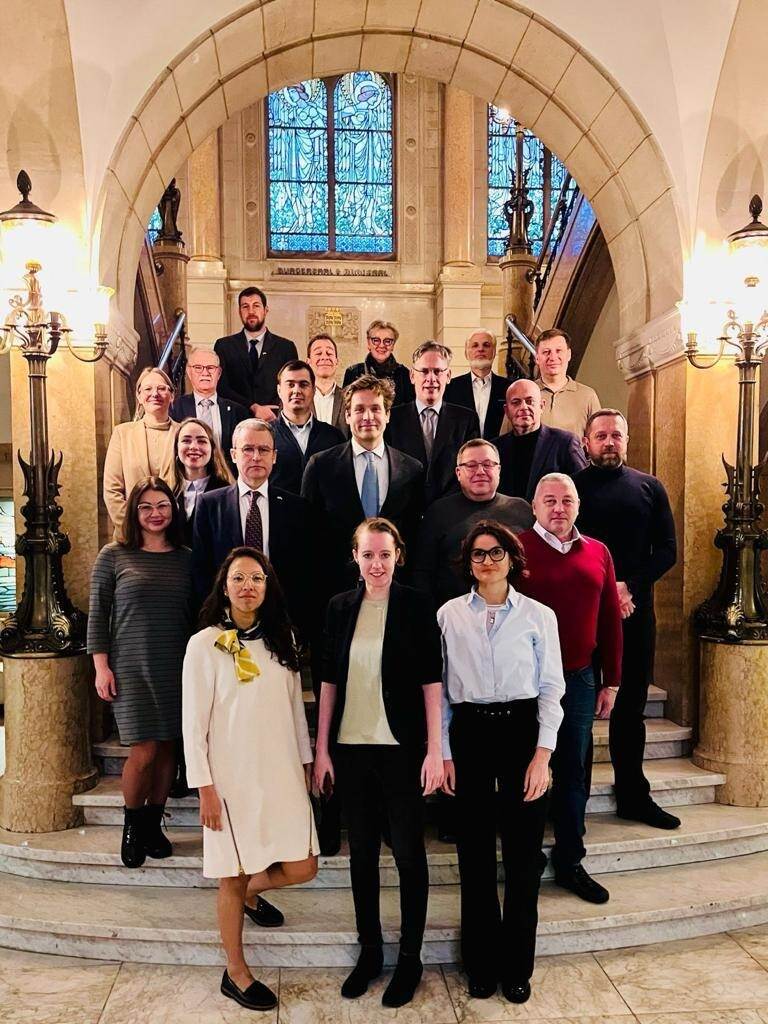In Rotterdam, Ukrainian cities find help with water and reconstruction
Weblogs
In late November, representatives from the Ukrainian cities of Mariupol, Odesa and Mykolaiv paid a working visit to Rotterdam. All three cities have come under heavy bombardment by Russia that has damaged, and in some cases destroyed, their infrastructure. During a week of training in Rotterdam the representatives acquired knowledge and expertise for reconstruction, with a particular focus on issues around water. Natalya Nazarova, who works at the Dutch embassy in Kyiv, looks back on a fruitful week. ‘We’re in the midst of a war; there’s no changing that. But why not try to come up with something positive despite this situation?’
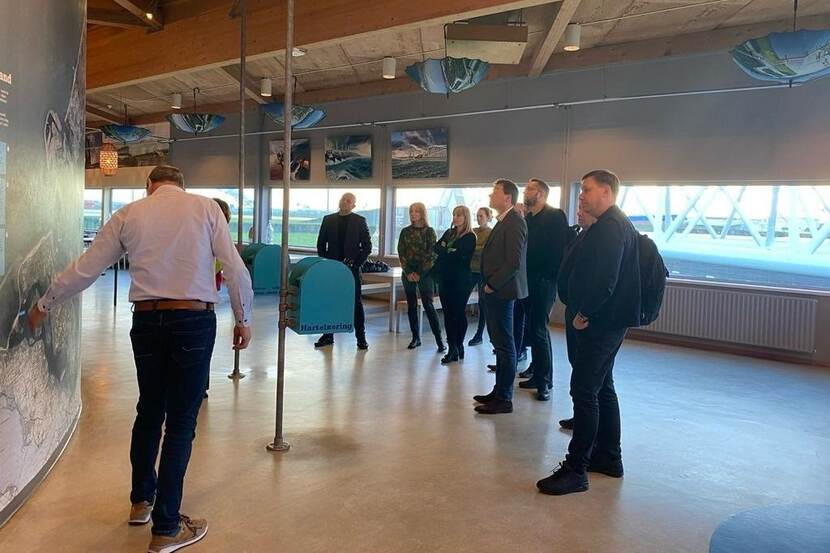
Natalya was involved in planning for the training week from the very beginning. She explains how the initiative came about. ‘The city of Rotterdam approached the embassy; it was already in contact with Mariupol on the topic of water. Mayors Ahmed Aboutaleb of Rotterdam and Vadym Boychenko of Mariupol had spoken about this together and wanted to take some concrete steps.’
Port cities
Natalya continues: ‘When we started thinking about it, we realised that water problems are a priority issue in many Ukrainian cities. So we quickly decided to involve Mykolaiv and Odesa in the plans. And we think that’s a logical thing to do, because they’re port cities just like Rotterdam and Mariupol. What’s more, Rotterdam has plenty of experience with reconstruction, having suffered heavy bombardment itself during the Second World War.’
The aim of the training week was clear from the start, says Natalya. ‘We wanted to send the representatives of the three cities home with as much concrete knowledge around water management as we could. So we asked them what knowledge they needed and then contacted a wide range of Dutch water experts, including urban planners, technical experts from Delft University of Technology and people from water authorities. Representatives from Mariupol, Odesa and Mykolaiv were each assigned a group of experts to talk to. And the great thing was that the experts had prepared so well that not a minute was lost. They identified specific paths for solutions in each city, which was enormously useful.’
Water quality
One of these paths was developed for Maryna Shpunyar and Oleksandra Bazarenko, who were in Rotterdam on behalf of Odesa. ‘We have enough drinking water in Odesa at the moment, but this week we were eager to learn about steps we could take if that changes. In Rotterdam we saw sustainable techniques for treating groundwater, to make it suitable for drinking without using chemicals. We also looked at how to develop mobile water treatment stations in the event that supplies are disrupted.’
Mariupol’s First Deputy Mayor Mykhailo Kogut explains the very different challenges his city faces. ‘We were having problems with water in Mariupol even before the war. The quality of our drinking water was already poor, and now we have shortages too. In Rotterdam we talked to experts about how to improve things in the short term.’ Mr Kogut is also thinking about a time after the war, he says. ‘The European Union has standards for water quality and supply. We’re doing our best to meet them in preparation for potentially joining the EU, and this week was very helpful for that.’ He adds, ‘But first and foremost it was about ensuring there’s enough drinking water for Mariupol’s 150,000 residents.’
Polluted drinking water is also a big problem in Mykolaiv, says Viktor Pisotskiy. ‘Most of our city’s water comes from wells, but well water needs to be treated. We’re using chlorine for that now, but that’s bad for our sewage system and we need to find a different technique.’
Kakhovka Dam
Natalya: ‘It’s clear that Ukrainian cities have major problems when it comes to water. But in fact this is something the entire country grapples with. In the area around the destroyed dam in Kakhovka for instance, which isn’t in the immediate vicinity of Mariupol, Odesa and Mykolaiv. So this training week is really the starting point for further knowledge sharing and concrete assistance from the Netherlands. One way we’ll do this is through Ukraine Water Public-Private Partnership Platform, which about 30 Dutch companies are involved in. They’re all helping to look for solutions to Ukraine’s water problems.’
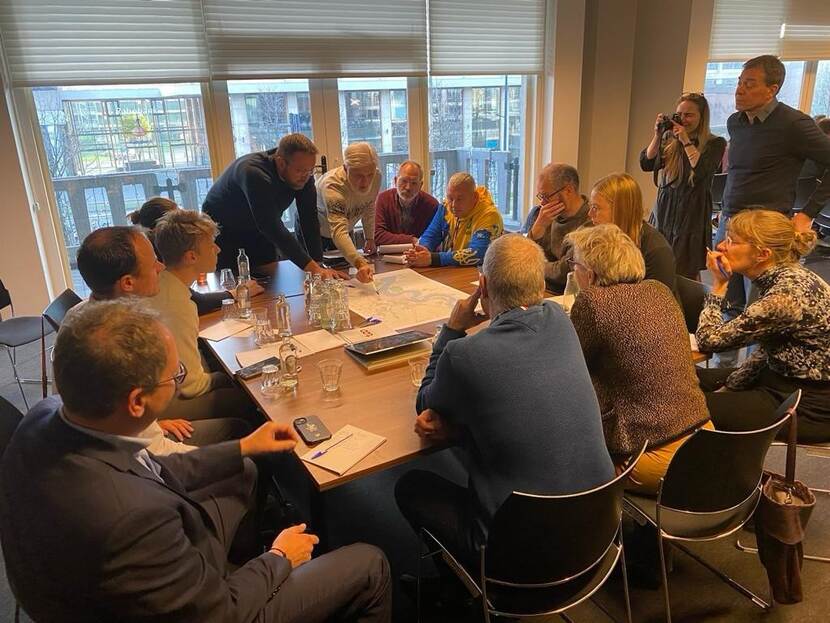
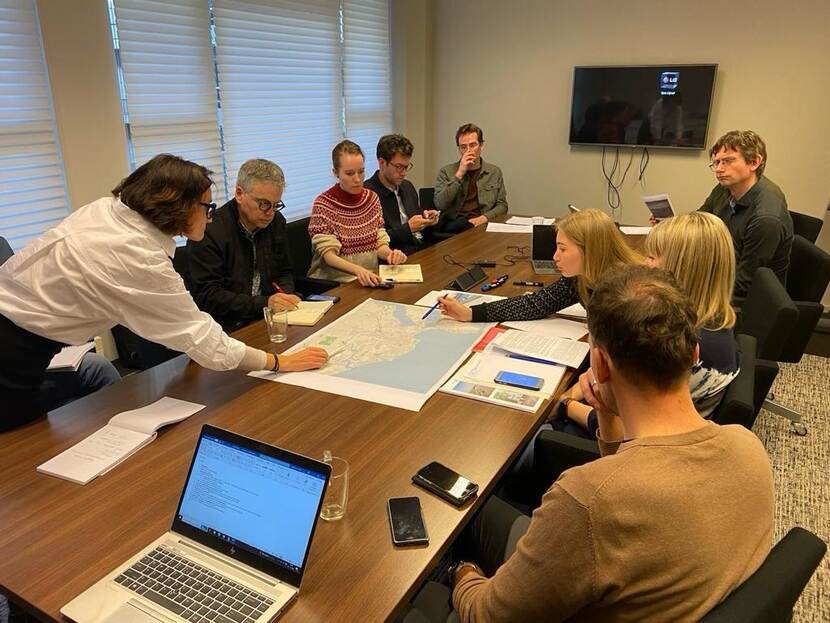
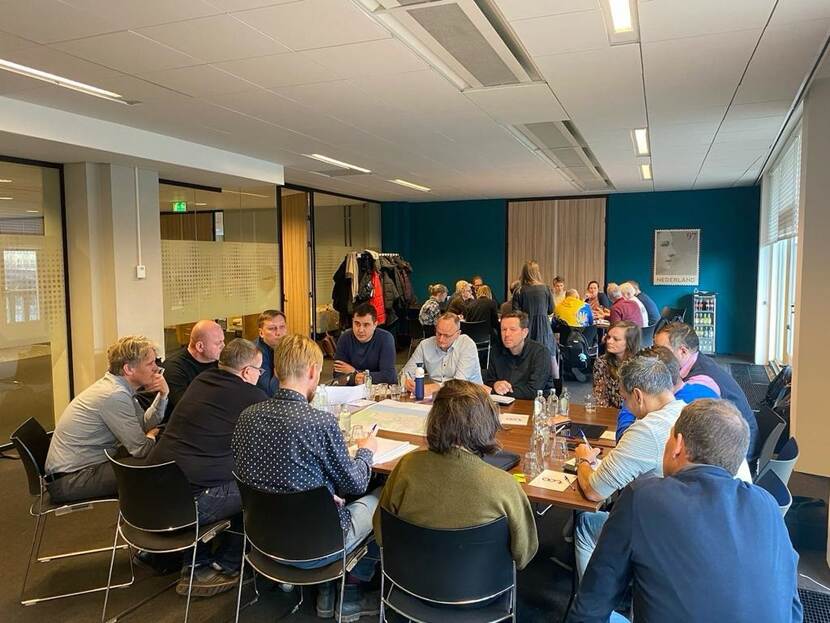
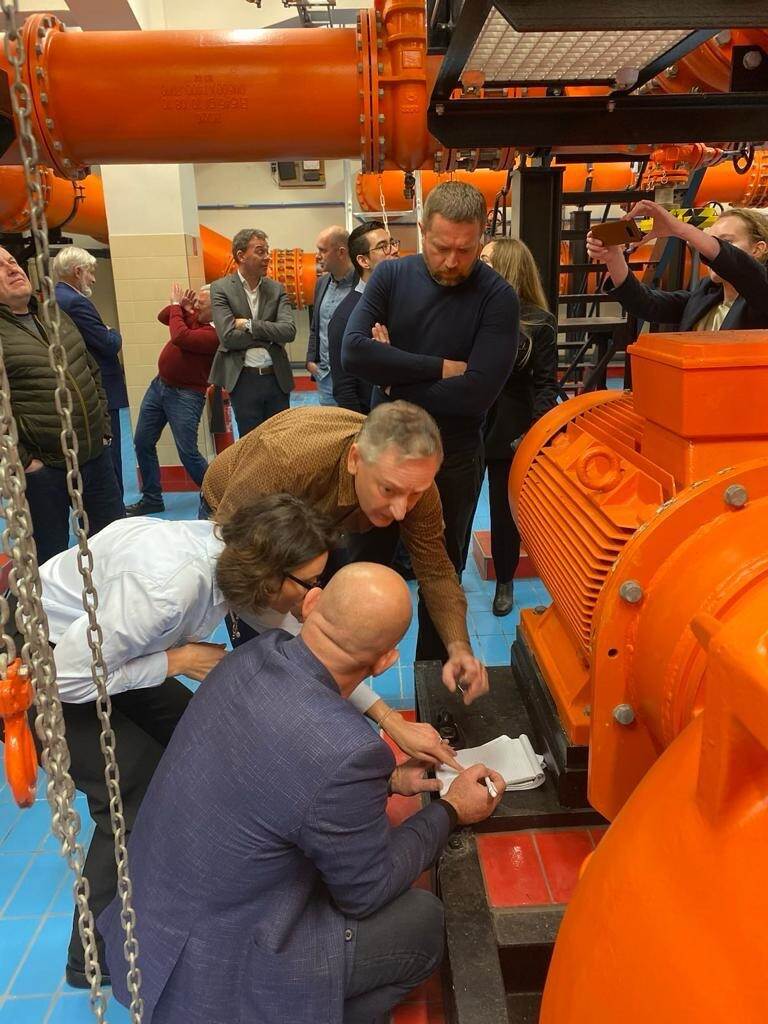
Creative architects
A large group of young, creative architects also contributed plenty of ideas during the training week, says Natalya. ‘In the context of Panorama Ukraine, the International Architecture Biennale Rotterdam asked them for their vision on possible solutions for a range of water-related problems. The city representatives attended that session to give an impression of the state of affairs in their cities, and then the young people opened their minds and got to work. And since they didn’t have first-hand experience of the situations in the cities, they were able to look at them with fresh eyes. And that brought some interesting new perspectives!’
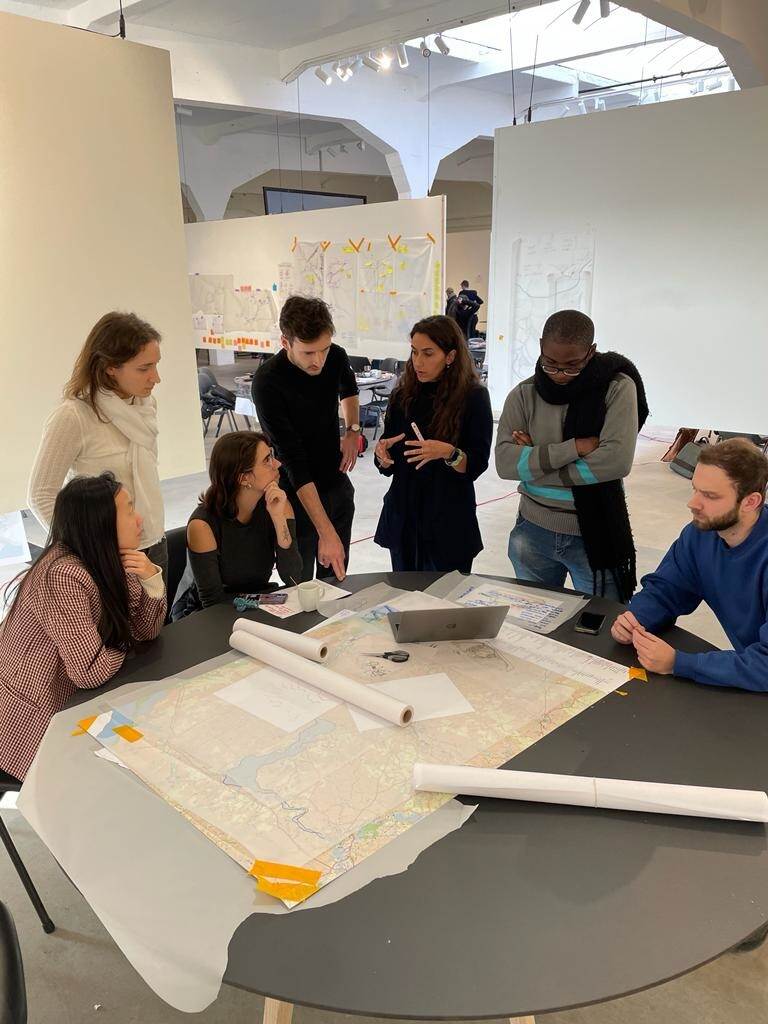
She explains: ‘One example is using rainwater sustainably and building reservoirs to collect excess river water during the wet season. The architects didn’t always come up with solutions that could be rolled out right away, but they did offer some creative ideas for addressing water problems in the future. And that was really useful. We’re in the midst of a war; there’s no changing that. But why not try to come up with something positive despite this situation? And that’s what we tried to do, thanks to these young architects.’
She adds: ‘The representatives of the Ukrainian cities, the Dutch experts and the young architects really did establish a special connection. The representatives took home a wealth of useful information when they returned to Mariupol, Odesa and Mykolaiv. And perhaps even more importantly, the cities felt supported in these very difficult times!’
